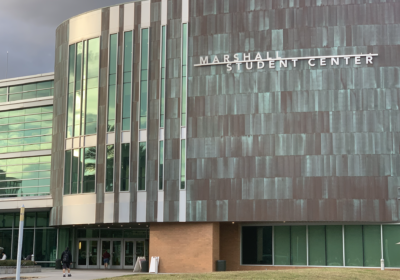Leave the squirrels alone
A story from the Gainesville Sun that was picked up by a number of papers across Florida last week depicted a menace that seems to be sweeping across college campuses: squirrels.
Crazy squirrels on college campuses have been a popular punch line among students for years, but according to the Gainesville Sun the squirrels at the University of Florida have gotten out of hand. The article detailed several eyewitness accounts of squirrel-on-human violence. One student claimed to have witnessed two squirrels chasing a girl across campus.
While UF students may live in perpetual fear of their squirrels, and other schools have implemented the forced removal of these nut-loving rodents, USF should not follow the same path. Instead, we should embrace our squirrels.
It is time for cooler heads to prevail in this squirrel hysteria that is not just confined to Florida. A police officer in Texas, apparently defending a group of middle schoolers, was forced to use pepper spray on a baby squirrel he believed to be rabid earlier this month, according to the Huffington Post.
A video of the incident was posted on YouTube earlier this month and has already gained more than 700,000 views and national attention. The video shows the officer confronting the miniscule squirrel while students can be heard shouting, “Don’t spray him!” After the squirrel is sprayed it is seen writhing on the ground.
Fortunately, the incident did not end in tragedy. Fox 5 New York reported that animal control officers treated the squirrel before releasing it into the wild.
Of course, some squirrels can carry diseases such as rabies, and squirrels have been responsible for at least two major power outages at USF, once in 2002 and again in 2003. Squirrels also apparently “have no natural predator,” David Flagler, director of Alachua County Animal Services, said to the Gainesville Sun.
But the indigenous squirrel population has always been a point of pride for many USF students. A Facebook page called “USF Squirrels” describes them as “The best squirrels on the planet” and has 3,254 likes. More users like the “Squirrels” Facebook page than like the Student Government, Campus Recreation, College of the Arts or The Oracle pages.
The alternatives of not learning to coexist with USF squirrels would be expensive or inhumane. According to the Central Florida Future, the University of Central Florida routinely has squirrels rounded up and relocated.
“I call TruTech (a pest and wildlife removal service) to come out a couple times a year, toward the fall when the squirrels become really populated,” said Gary Campbell, maintenance supervisor for the UCF Student Union, to the college paper in 2006.
The article claimed the squirrels are relocated to Blithlo, a nearby community, but this mass roundup sounds too close to Nazi Germany’s Final Solution for comfort. USF should instead become a beacon of hope for squirrels everywhere, with plenty of trees to climb and trashcans to rummage through.
According to Campus Squirrel Listings, a website that rates colleges on a scale of one to five squirrels, “The quality of an institution of higher learning can often be determined by the size, health and behavior of the squirrel population on campus.”
UF, despite its rampant squirrel-phobia, ranks four out of five, while Florida State University has a paltry two-squirrel ranking. USF doesn’t even make the list, though the page is maintained by a Tampa-based wildlife removal service, a situation that must be rectified.
While students and squirrels may not always get along, these rodents must not be exterminated or removed from campus. Doing so would throw off USF’s delicate ecosystem – consisting primarily of squirrels, feral cats and ducks – and would make the campus a far less exciting place.
Michael Hardcastle is a junior majoring in creative writing.






